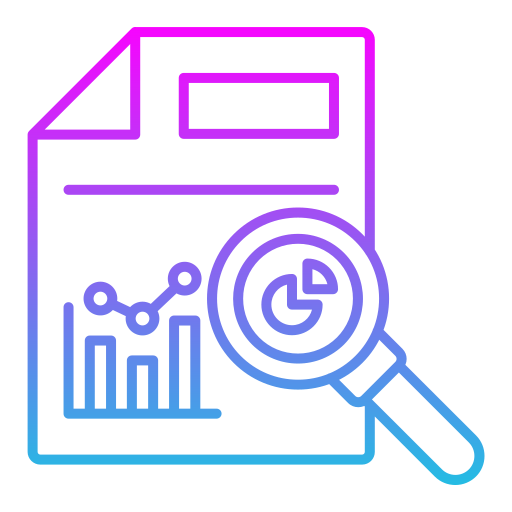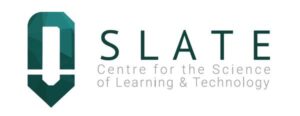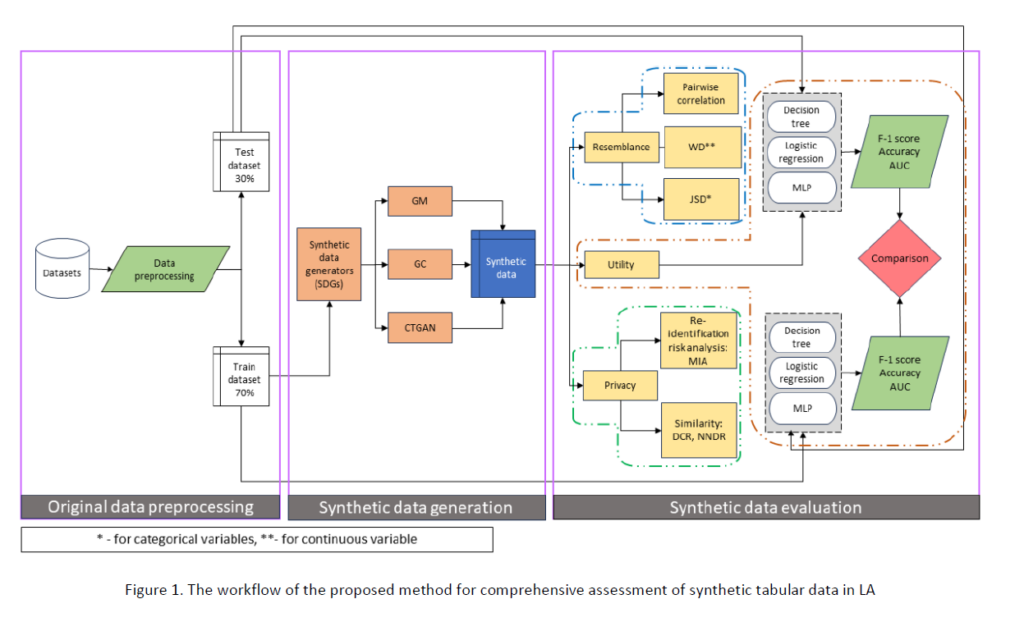LEARNING ANALYTICS
Synthetic Data Generation
LEARNING ANALYTICS
Synthetic Data Generation
Unlock the potential of Synthetic data
Why Synthetic Data?

Data Privacy Protection
Synthetic data ensures personal information remains secure by mimicking real data without exposing sensitive details, helping organisations comply with regulations like GDPR while maintaining data utility.

Data Augmentation
By generating additional examples, synthetic data helps improve the performance of machine learning models, especially when real data is limited or unbalanced, boosting accuracy in educational applications.

Cost-Effective Data Generation
Creating synthetic data is faster and more affordable than collecting real-world data, allowing for large-scale data generation without the high costs of manual data collection and labeling.

Bias Reduction
Synthetic data allows for controlled data generation, reducing bias and ensuring fair outcomes in AI systems, especially important in education where fairness and inclusivity are key.

Training AI Models
With synthetic data, AI models can be trained in diverse educational scenarios where real data is scarce, allowing for faster prototyping and more robust solutions.

Safe Experimentation Environment
Synthetic data provides a risk-free space for testing algorithms and systems, enabling innovation without the consequences of using sensitive real-world data.
Our Mission
The Synthetic Data Generation for Learning Analytics (LASD) project aims to expedite data-driven innovation in education by leveraging cutting-edge generative AI techniques. By synthesizing artificial data specifically tailored for learning and educational purposes, the project will advance the field of learning analytics.

Who can use?
This platform is designed for data scientists, AI researchers, developers, and businesses looking to leverage synthetic data for various applications.
Synthetic Data Market Insights
An overview of trends and projections in the synthetic data generation market.
Expected growth from $0.29 billion in 2023 to $3.79 billion by 2032.
Source: SNS Insider, 2024
Data types include structured (45%), unstructured (35%), and semi-structured (20%).
Source: SNS Insider, 2024
Main drivers include data security, AI/ML adoption, and cost-effectiveness.
Source: SNS Insider, 2024
North America leads, followed by Europe and Asia-Pacific.
Source: SNS Insider, 2024
About Us
We are a team of passionate researchers from the Centre for the Science of Learning & Technology (SLATE), from the University of Bergen from Norway, driven to scale the impact of educational data science research of learning analytics, and AI in education (AIED). Our mission is to support learning and teaching at scale in the areas of learning analytics and AIED while ensuring high level of data protection and privacy standards.

Cost Saving
The expense of data labeling and data collection can be reduced by generating synthetic data.

Reduce Bias
Bias in machine learning models can be reduced by increasing the proportion of minority samples, as well as simulating what-if scenarios through synthetic data.

Privacy Protection
Synthetic data serve as a substitute for data that cannot be released to the outside world for privacy reasons, thus supporting open science and accessible data quality
Recent work
Privacy poses a significant barrier to the advancement of Learning Analytics (LA). Current data security methods face challenges such as inadequate anonymization and the possibility of data misuse. In response to these challenges, synthetic data emerges as a promising solution that ensures strong privacy protection. This project seeks to address the interplay between data privacy and data utility by proposing a comprehensive evaluation framework for synthetic data.
We have published our paper in Proceedings of the 14th Learning Analytics and Knowledge Conference (LAK ’24).
Contact us
Have any questions and feedbacks? We are always open to talk about your data generations, new projects, creative opportunities and how we can help you.
info@lasd.ai
Phone number:
+47-46241580


